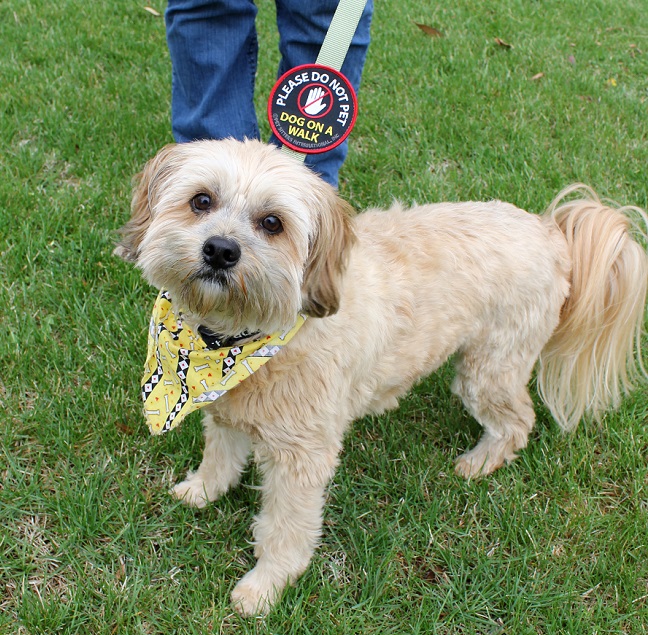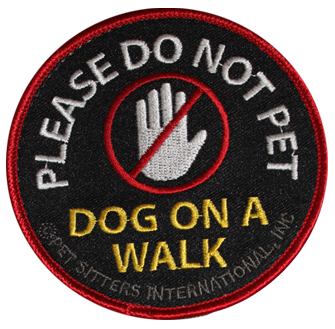During National Dog Bite Prevention Week, Pet Sitters International Urges Dog Lovers to Think Twice
Pet Sitters International (PSI) encourages pet owners to heed the advice shared by professional pet sitters to help prevent dog bites and attacks while a dog is being walked.

National Dog Bite Prevention Week is observed annually the third full week of May. The 2016 event, spearheaded by the American Veterinary Medical Association (AVMA), takes place May 15-21 and focuses on educating people about preventing dog bites. This year, Pet Sitters International (PSI), the world’s largest educational association for professional pet sitters, is asking the pet-owning public to heed advice from its pet-sitting members to help prevent dog bites and attacks from occurring while a dog is being walked by a professional pet sitter.
The Danger of the Friendly Stranger
According to the AVMA, more than 4.5 million people in the United States are bitten by dogs each year—and almost one in five people bitten requires medical attention. For professional pet sitters, this concern is top of mind year round.
Unfortunately, well-intentioned pet lovers often don’t think twice about approaching to pet a dog on a walk. For professional pet sitters—whose top priority is to ensure the comfort and safety of pets in their care—this uninvited attention can be uncomfortable, or even dangerous.
PSI-member pet sitters taking part in an online discussion regarding preventing dog bites during pet-sitting visits agreed that while dogs in their care are very unlikely to display aggressive tendencies, dog behavior can be unpredictable in new situations or around new people. And as professional pet-care providers, their goals are to remain in control and to prevent any situation that could pose a threat.
To ensure safety, many of PSI’s pet-sitting members indicated they inform pet owners that even for humans or other dogs the clients’ pets may know, they don’t allow interaction while they are on dog walks.
While clients may be familiar with a pet sitter’s policies, pet sitters encounter others on walks who will not be—and pet sitters have to decide how to respond. Pet owners are urged to make eye contact with the pet sitter and ask for permission to interact with the dog(s) before approaching.
For most pet sitters who participated in the online discussion, avoiding the situation before friendly strangers even have a chance to approach is their typical strategy.
“I try to avoid other people and dogs if at all possible,” says Carol Vogel, owner of B.M.S. Pet Sitters LLC in South Carolina. “I change direction if I am able. You never know how a client’s pets will react and don't want to take a chance of the client’s pet getting injured or injuring another.”
Loose Dogs: Nightmares for Pet Sitters
When pet owners fail to properly contain their dogs, there can be serious consequences. In fact, loose dogs off their owner’s property inflicted 40 percent of all fatal human attacks in 2014, according to DogsBite.org.
While all pet sitters participating in PSI’s dog-bite discussion agreed that when asked to stop and not pet a dog, most humans were happy to oblige, they also agreed that a threat much more difficult to control is an off-leash dog.
“I’m much more concerned with other dogs attacking a dog I’m walking than a stranger trying to pet the dog,” says Massachusetts pet sitter Robyn White, co-owner of Me You and Lu LLC. “To me, an unknown dog can potentially be a bigger problem than a person since the person can clearly understand if I say my dog is unfriendly or shy around strangers, but dogs can’t.”
These professional pet sitters encourage pet owners to understand and abide by local leash laws—and to understand that even where off-leash walking is permitted, not every dog wants to socialize with other dogs.
Off-leash dogs can present a danger not only to the dog in the pet sitter’s care, but also to the pet sitter. Unfortunately, this is a scenario that Laura Woods, owner of Woods Pet Care in Tennessee, understands all too well.
“I was walking a client’s dog that is somewhat dog aggressive when a loose dog ran up to him,” she explains. “I fell trying to keep them from fighting and broke three bones.”
Prevention is Key
 Beth Stultz, PSI director of marketing, communications and education, notes a trend that continues to grow in the pet industry is the use of special dog vests, leashes or leash badges requesting that passers-by not approach. While traditionally used by service-dog handlers, she expects these types of products to become more popular among professional pet sitters and dog walkers as they look for new ways to protect the pets in their care while on walks. The Pet Sitter Shop offers “Do Not Pet” leash badge attachments in both English and Spanish.
Beth Stultz, PSI director of marketing, communications and education, notes a trend that continues to grow in the pet industry is the use of special dog vests, leashes or leash badges requesting that passers-by not approach. While traditionally used by service-dog handlers, she expects these types of products to become more popular among professional pet sitters and dog walkers as they look for new ways to protect the pets in their care while on walks. The Pet Sitter Shop offers “Do Not Pet” leash badge attachments in both English and Spanish.
Stultz also encourages pet owners and professional pet sitters to work together to keep both dogs and people safe: “PSI recommends that our pet-sitting members have policies in place to avoid potentially dangerous situations and urges pet owners to be courteous of professional pet sitters walking dogs by not approaching them without permission and by keeping their own dogs on leashes.”
To learn more about National Dog Bite Prevention Week, visit the AVMA website. To learn more about PSI and its members or to locate a professional pet sitter in your area, visit www.petsit.com.






